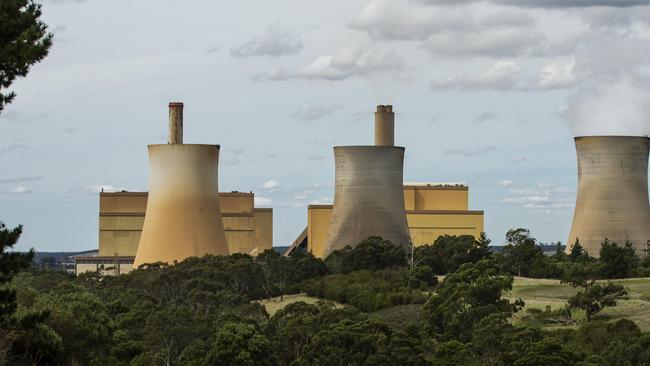Power generator revenue slumps $5bn in mild summer and soaring solar
Power firms usually reap billions as we crank up aircon in summer. Not this time, as solar and mild days crunched prices.
SA News
Don't miss out on the headlines from SA News. Followed categories will be added to My News.
The plunging wholesale prices of electricity cut $562m from revenue earned by generators in South Australia in the first quarter of this year.
The mild summer and growth in rooftop solar pushed prices down so much that generators only made $146m in the quarter compared to the $708m for the same period in 2019.
Households won’t immediately see the cut, but the trend is forcing retail prices down as complex financial buffers unwind.
Across the national electricity market, the fall was even bigger. Revenue totalled $1.8bn - down $5.4bn compared to 2017, according to a report from the Australian Energy Regulator being published on Monday.
“In summer, and particularly the first quarter, wholesale electricity prices are usually higher with hot weather prompting more use of air conditioners, and higher demand for electricity pushing up prices, but this year was different,” AER chair Clare Savage said.

“The milder temperatures during the past summer period and an additional 2500MW of rooftop solar capacity drove lower demand and lower wholesale prices, which is good news for consumers because it should lead to lower bills.
“The first quarter of this year also highlighted the impact of the energy transition on thermal generators with the lowest gas generation seen since 2005 and coal generation dropping to a record first quarter low — the first time average large scale solar generation exceeded gas generation.”
Federal Energy and Emissions Reduction Minster Angus Taylor the Government expects price falls to be passed on to consumers. Wholesale prices make up about a third of retail bills.
“Household electricity bills have been falling for over two years, with ABS CPI data showing household costs are currently 11.2 per cent lower than they were this time last year,” he said.
“Since the introduction of the Big Stick legislation to March this year, there have been 19 straight months of wholesale price reductions on the previous year.
“We will continue to take action to ensure energy bills stay low and Australians have reliable and secure power.”
The crash in prices has serious implications for the financial viability of some companies, particularly coal-fired power stations which have high labour and input costs.
The chair of the Energy Security Board chair Kerry Schott warned last week that “coal generators are going broke as more and more renewables come in”.
The board is currently consulting on its draft redesign of the electricity market so the transition out of coal is orderly.
In SA, spot market turnover for the March quarter peaked at $708m in 2019, dropped to $234m in 2020 and then $146m this year.
Across the national electricity market, the peak of $7.126bn came in 2017.
It dipped to $4.4bn in 2018, rose back to $6.6bn in 2019, then started the downward trend at $4.2bn in 2020 before hitting $1.774bn this year.
Ms Savage said the low demand on commercial generators when there is excessive rooftop solar generation can cause stability problems.

On March 14, this led to 50MW of rooftop solar on some 14,000 homes and 17MW of commercial scale solar being switched off in SA.
A separate report last week by the AER also shows how the grid is vulnerable to failure by large generators.
On March 12, a fire at the Torrens Island substation cut off generators leading to power prices spiking above $5000/MWh for three hours – compared to the volume weighted average $53MW/h for the quarter.
Meanwhile, the AER also has finalised transmission and distribution charges which will apply from July for next financial year for ElectraNet and SA Power Networks.
That component of households bills will be cut by an average $5/year but small business bills will increase by $20/year.




